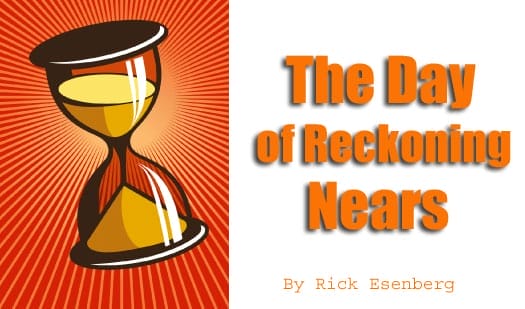After Nov. 6, conservative ideas are even more critical for the country
Writing on the National Review website the day after the Nov. 6 election, Michael Knox Beran suggested that “[t]hose of us who continue to oppose the fiscal and constitutional overreach of the modern social state now find ourselves in the wilderness.” Charles Donovan suggested that conservatives are in a “Babylonian captivity.” Others have suggested that this presidential election may mark the fulfillment of the perhaps apocryphal prediction (variously attributed to Tocqueville or Macaulay) that the American republic will endure only until the day the voters discover that they can vote themselves the money.
Well, yes and no.
Let me begin by suggesting that the sky has not fallen. We should never be surprised when a sitting president is re-elected. Since 1900, 15 of 19 incumbents have been re-elected. Of the four losers, two ran in races complicated by the presence of an unusually strong third party candidate more likely to take votes from the incumbent. In the 17 traditional two candidate races, only Herbert Hoover in 1928 and Jimmy Carter in 1980 failed to be re-elected. Of those 15 races in which the incumbent was re-elected, the two challengers to come closest in the popular vote were John Kerry and Mitt Romney.
Barack Obama ran a campaign that was more about portraying Romney as a less cuddly version of Daddy Warbucks. He offered no vision of his own. He was unwilling to outline a plan for an expanded social welfare state or to call for the taxes that would be necessary to pay for it. Had he done so, he would have lost.
But it would be wrong for conservatives to conclude that all will be well in 2016. We did not lose the country on Nov. 6, but we should be very concerned about its future.
In the wake of Romney’s defeat, some commentators have suggested that we have reached a “tipping point” — a place at which a sufficiently large percentage of the population sees itself as net beneficiaries of government largesse.
For an increasingly large number of voters, government is not something that merely provides things like roads, national defense, public education or even a safety net for the poor. It is a vehicle for massive redistribution of income. It is a place that you go to get “benefits” to which a large percentage of the population ought to be entitled. It gives you cell phones and birth control pills. It saves you — or your employer — from bad financial decisions. It cares for you.
For this coalition of dependency, “what your country can do for you” is precisely the question that ought to be asked.
The poor performance of Republicans among minority voters may well be a reflection of this. Republicans want smaller government, fewer regulations and less redistribution of income. Voters in these demographic groups, disproportionately poorer and less economically secure, do not.
I am not sure that we have reached this tipping point. But there is no doubt that we are creeping ever closer. It is well and good — actually, it’s essential — to recognize the nature of the problem. But running against those who are, as David French put it, frightened by free markets and personal responsibility will not win elections. It will do nothing to forestall the erosion of liberty.
Our challenge is far more difficult than that. Part is educational. We must re-engage the battle of ideas — something that was not Romney’s strength. In the language of Frederic Bastiat, we must learn how to explain to voters those harms that are “unseen” when taxes are too high, regulation is too onerous and the state practices crony capitalism under the soothing name of “public-private” partnerships.
But another part is programmatic. We must give more people a stake in a market economy. Tax cuts alone will not seal the deal. Partly due to 30 years of GOP tax-cutting, fewer people pay income taxes, and forming a majority coalition of taxpayers is becoming increasingly difficult.
For all his faults, George W. Bush understood this. His ideas about defining a “compassionate conservatism” and building an “ownership society” were faltering steps in the direction of expanding the conservative coalition. Admittedly, they remained underdeveloped and poorly executed. He never clearly defined compassionate conservatism as anything other than Big Government writ a tad smaller. There is no future — for conservatives or the country — in offering a softer echo of Democratic statism. The ownership society capsized in the swell of the financial collapse. It is time to bring it back.
I don’t pretend to know precisely how these challenges are best met. But we enjoy two huge advantages. First, as Herbert Stein once said, if a thing cannot go on forever, it will stop. Our entitlement state is not sustainable and cannot, as the president has implied, be paid for by asking the rich to pay a little — or even a lot — more. The day of reckoning approaches. They don’t have an answer. We do.
Second, the modern Democratic Party — and certainly Barack Obama — seems to be committed to a new form of crony capitalism, with the state enriching those individuals and companies that are committed to pursuing favored policies such as green energy, affordable housing or state-managed medicine. Corruption and busts are inevitable. Teachable moments will follow.
As I write this, it is the Thursday following the election. My grief is past. The time to get to work is now.
Richard Esenberg is president of the Wisconsin Institute for Law & Liberty and an adjunct professor of law at Marquette University. He blogs at sharkandshepherd.blogspot.com





